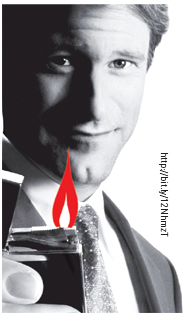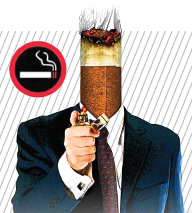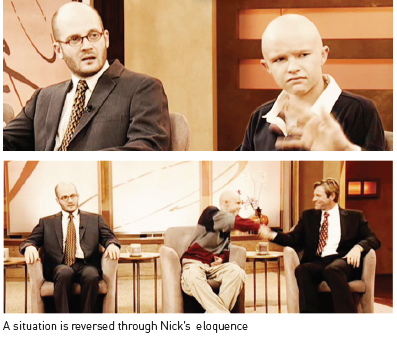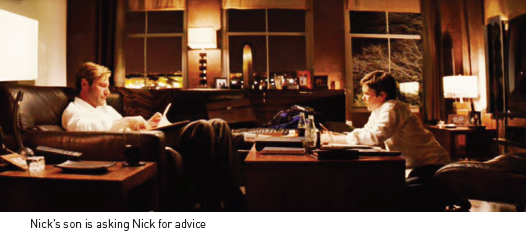
Let us think of the cigarettes. What is the common idea about cigarettes among people? Ninety-nine percent of the people would probably acknowledge that it is harmful to the human body. In this case, what can you do if you are the lobbyist for the Academy of Tobacco Studies? Your job is to plead with potential customers to sell more tobacco products and help tobacco companies make profits. Could you do that?
Nick Naylor, the main character of the movie Thank You for Smoking, is a tobacco lobbyist and the vice-president of the Academy of Tobacco Studies. As you can see from the title of the film, Nick’s position is to express gratitude to smokers. Nick says during one television appearance that if a boy who contracted cancer due to smoking dies, the tobacco industry will lose one of its customers. Nick is predictably booed at. After a few words, however, people applaud for Nick and even the boy with cancer shakes hands with Nick. What on the earth does he say?

He teaches his son, “To make an argument, and win that argument. That is all.” The following dialogue is from a scene where his son asks Nick for advice on how to write an essay about ‘Why is the American government the best government?’
Nick: Bullshit, if I may, is what questions like the one your teacher posed are made for. Because even if America had the best government, there’d be no way to prove it. / Son: So what am I supposed to write? / Nick: You can write whatever you want. Write about America’s amazing ability to make profit by breaking down trading tariffs and bringing American jobs to Third World countries. Or how good we are at executing felons. They’re all correct answers. / Son: I can do that? / Nick: See, Joey, that’s the beauty of argument. Cause if you argue correctly, you’re never wrong.

This film ultimately shows the state of modern society, including Korea, in that it is hard to figure out what is true and what is false. As I mentioned earlier, even though something is a common idea, it might have been ‘manipulated’ with a certain purpose in mind. Also, although common beliefs or ideas might sometimes be refuted, we should not assume that these refutations are automatically true. It becomes more serious, especially in the cases of plays on words like Nick’s refutations. In other words, when we judge something, it is not desirable to rely on someone’s opinion. Coming to the final decision should be the respective responsibility of each person.

Nick: I’m here to say that when someone tries to act like some sort of an expert, you can respond, “Who says?” My point is that you have to think for yourself. You have to challenge authority. So perhaps instead of acting like sheep, when it comes to cigarettes, you should find out for yourself.
When making decisions, people, including myself, often tend to become passive and easily influenced by others. This is because we cannot be sure of whether our decisions are right or wrong. However, even others’ opinions that we rely on are just opinions. Nothing can be completely objective. Smokers keep smoking, even though they already know about the harmful effects of tobacco. Likewise, each individual should judge something based on his or her own logic. It is similar to how Nick defends and justifies even what is ridiculous. I will ask you another question like I did at the beginning: Can you argue against the prejudice and criticism of the world by completing your own thoughts as Nick does?
source: FOX Searchlight Pictures
Yoon Hye-lin Vice Editor-in-Chief
dnr425@uos.ac.kr

